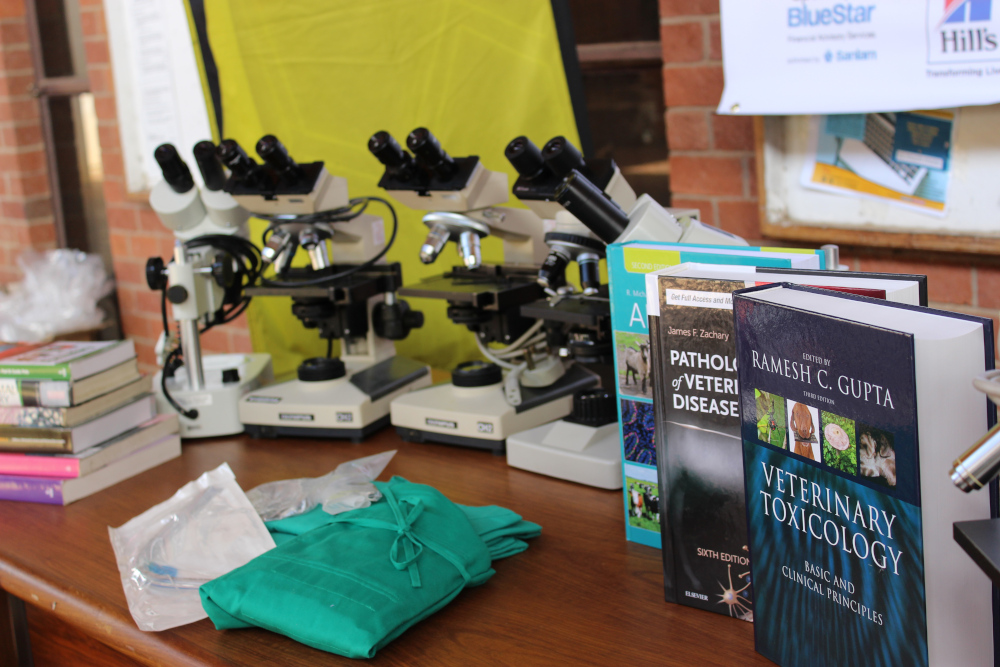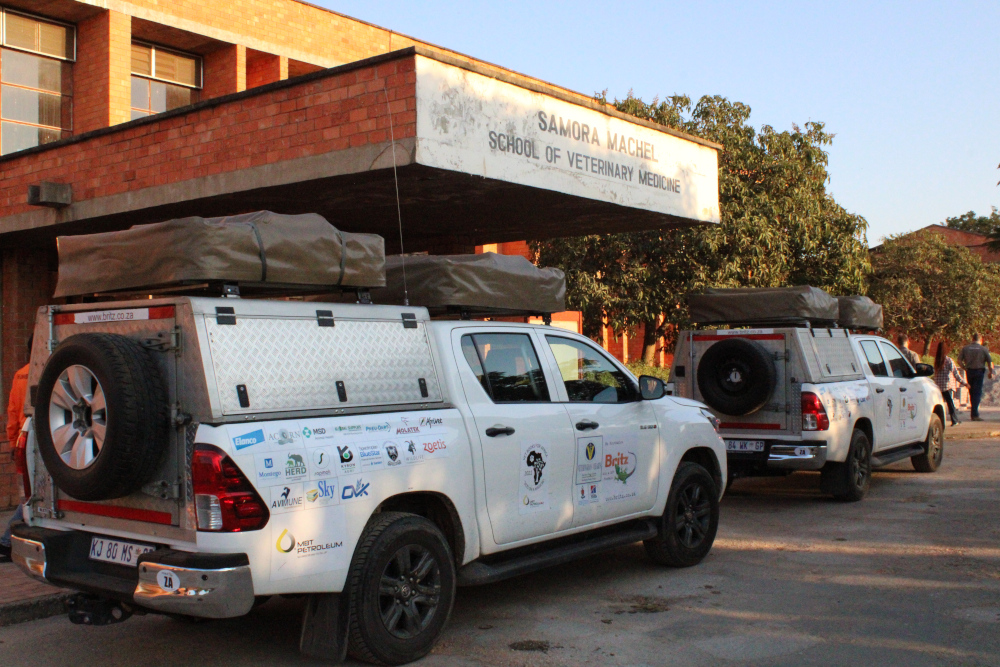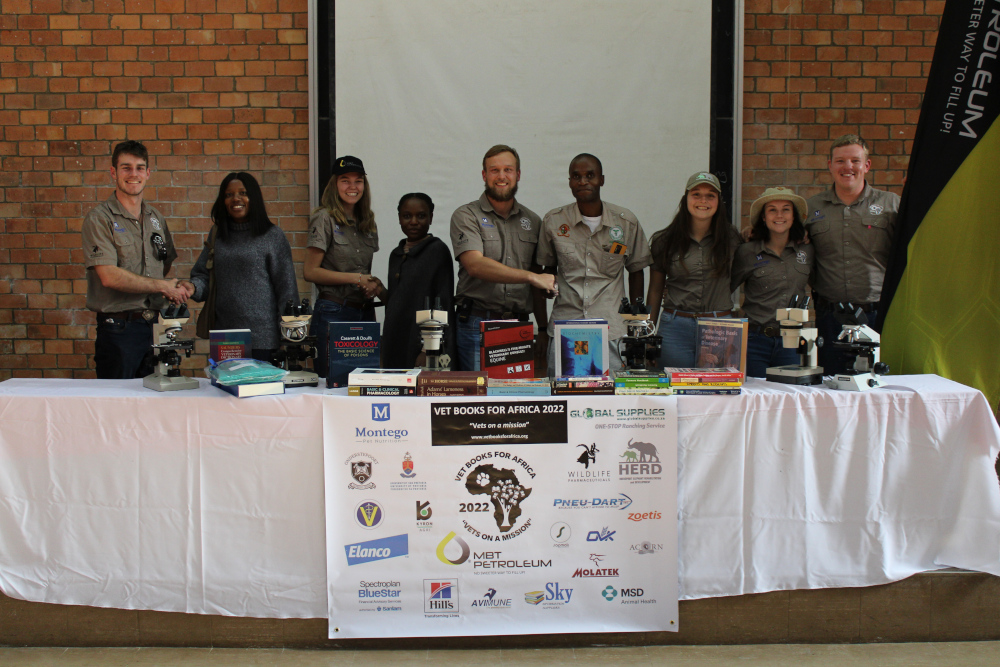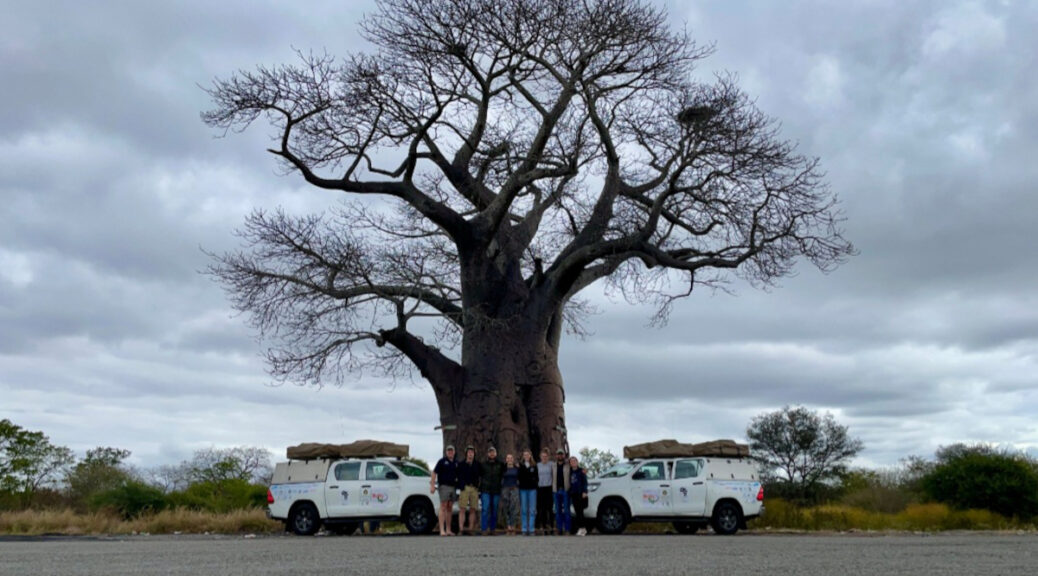Ten countries, five weeks, one important mission. For the students behind Vet Books for Africa, overlanding is a way to bring veterinary resources to remote places. By Magriet Kruger
In 1993, a group of eight Onderstepoort vet students embarked on an overlanding trip. Like other adventurous spirits, they were eager to explore Africa. But these overlanders were travelling with unusual cargo: veterinary textbooks destined for under-resourced universities. It was the start of Vet Books for Africa, a unique student-run initiative that supports veterinary faculties on the continent.
Since then, the Vet Books for Africa members have collectively undertaken 15 trips, covered almost 100,000km and distributed around 2,700 books. Every two years, a new committee of eight students, drawn from the third and fourth years, carries this unique project forwards. This year, Tracks4Africa is helping the team with navigation so they can make the most of their time on the ground. Vet student and team member Stian Wessels gave us insight into the initiative.
What does Vet Books for Africa look like in its 30th year?
Because book donations to universities aren’t quite as needed as they once were, we have shifted and expanded our focus. In addition to helping universities, Vet Books for Africa assists animal sanctuaries, community vet clinics and primary schools. Ahead of our trip we send them a wish list, which we then set out to fill. Although we still obtain vet books, we also get surgical equipment and various animal supplies. Unfortunately, we can’t quite stretch to an X-ray machine – and it also wouldn’t fit in the vehicle!
This year we’ve also run a stationery drive for the primary schools we support. Every “stat pack” contains an exercise book, pens, pencils, eraser, sharpener and ruler. Just what kids need to do their schoolwork. (Who knows, maybe one day one of these pupils will become a vet. – T4A)
What sort of impact does the project have?
I can share a good example of the difference Vet Books for Africa makes. Recently, Onderstepoort upgraded equipment and we got a donation of 28 microscopes – all fully operational. One of these went to Zambia’s Leopard Hill Veterinary Clinic, where the vet immediately used it to investigate a blood smear and diagnose canine babesiosis. A further six microscopes went to the University of Zimbabwe and five to the University of Zambia, greatly increasing the number available to students.

From the contact with our peers, it’s clear the instruction they receive is similar. In fact, some of our lecturers at Onderstepoort trained in Zimbabwe and they’re exceptional. But, in South Africa, we definitely have far more resources at our disposal. While we each have access to a microscope, in other countries a whole class might have to share a handful. This project helps get more of those essential tools into the hands of vet students and others caring for animals.
This year, you’re doing two trips. How did that come about?
We set ourselves the goal to expand Vet Books to Rwanda and Burundi. However, we have only five weeks over the summer holidays to visit all the beneficiaries. So we decided to go to Zimbabwe and Zambia in July already. We covered almost 4,000km in 10 days, visiting the universities of Zimbabwe and Zambia, Twala Trust and Lilayi Elephant Nursery (among others). It was hard going, but it means we can cover more ground at the end of the year. Now we’ll get to Malawi by day 3 instead of day 11.
Another advantage of the July trip is that it served as a dry run for us. We could take a good look at our gear and whether we were overpacking. While we were on Lake Kariba, one of our committee members hurt her back and we had no cellphone reception. It became clear we need a way to communicate when we’re in the back of beyond, so we’re looking at a satellite phone.

How did Tracks4Africa get involved?
It actually came about via Johan Badenhorst of Voetspore. He’s helped us a lot with information on overlanding in Africa and places to stay. Through him I got in touch with Johann Groenewald of Tracks4Africa, who has been a great help with the route planning, for which I’m responsible. Tracks4Africa gave us an atlas and GPS maps, so I’ve been able to plot out our route on Garmin Base Camp. This way I can tell if a distance of 200km is going to take us three hours or seven – Google Maps doesn’t cover that. On our trip we will record our tracks, so we can share this information with Tracks4Africa. It feels good to know we can also give back to the overlanding community.
Also read: Voetspore’s Johan Badenhorst unveils his overlanding secrets
Where will you be going?
Our route takes us via Zimbabwe and Mozambique to Malawi, Tanzania, Kenya, Uganda, Rwanda and Burundi to visit various universities, NGOs and schools. We’re particularly looking forward to seeing Lake Malawi and Mount Kilimanjaro along the way. We’ll also spend a night or two camping on Lake Tanganyika, the deepest lake in the Southern Hemisphere. We’ve already purchased and packed most of the books. We’re scheduled to depart on 2 December, but we still need to obtain 4×4 vehicles (any offers?). Until then, we’re fundraising and getting donations.

What does this initiative mean to you?
It’s a privilege to be able to make a difference. By joining forces – as students and with other organisations – we can make a bigger impact. Vet Books allows us to reach so many more people. It’s also broadened our horizons, because we’ve come into contact with vets in different countries, academic faculty members and other overlanders.
To find out more about the initiative, visit vetbooksforafrica.org.


This is wonderful. TAWI (Transkei Animal Welfare Initiative), based in Port St Johns might appreciate some help. They get vets down there to do their community service, but they have practically no equipment to work with.